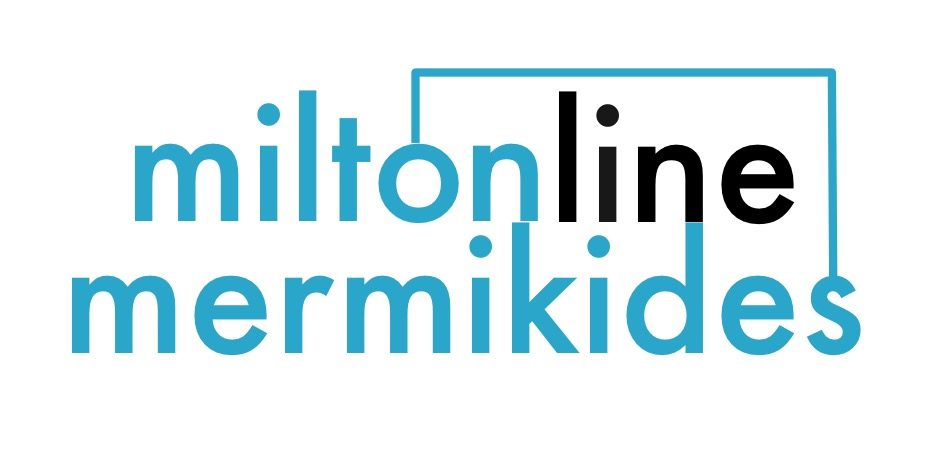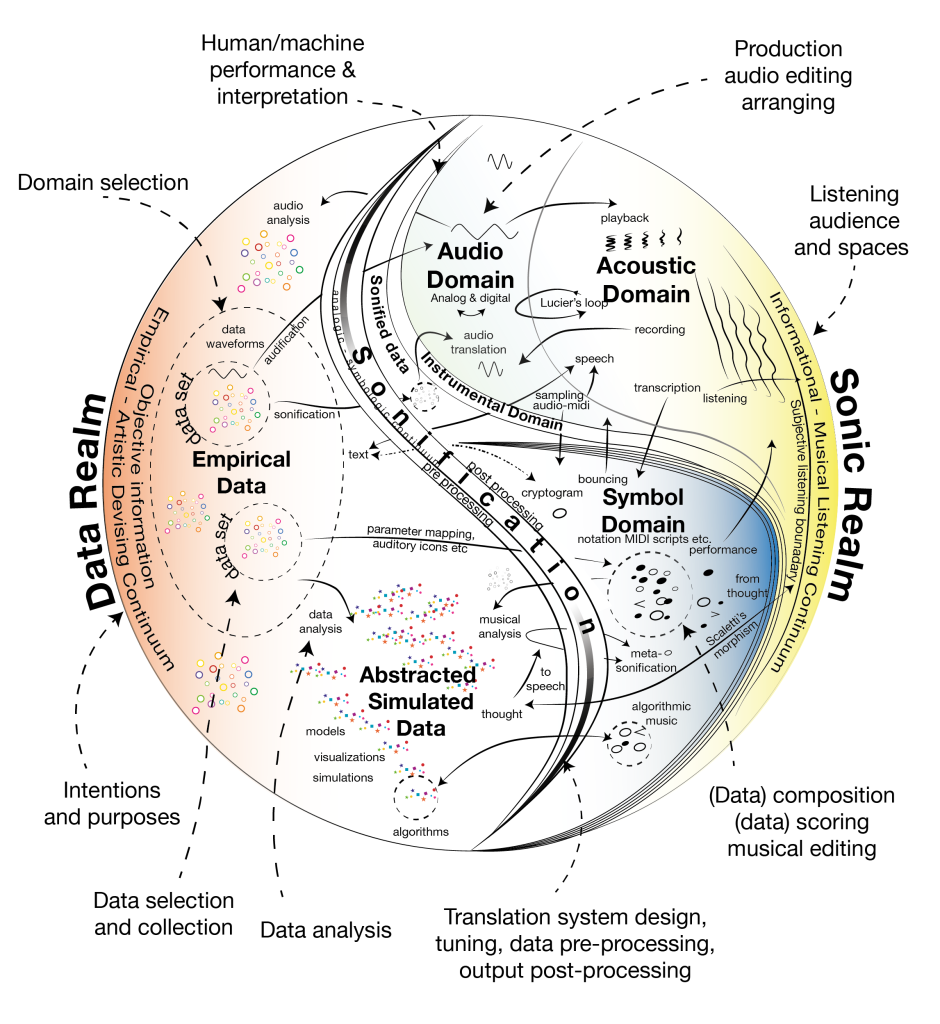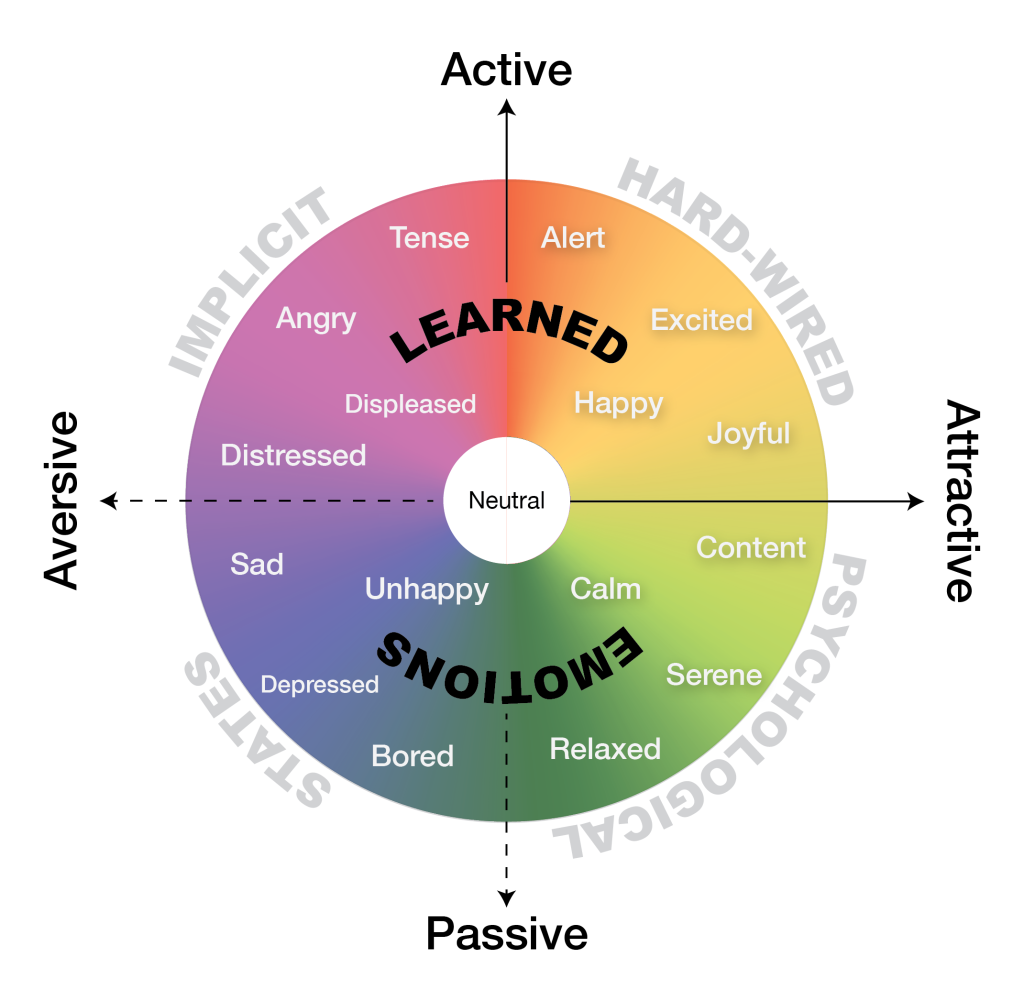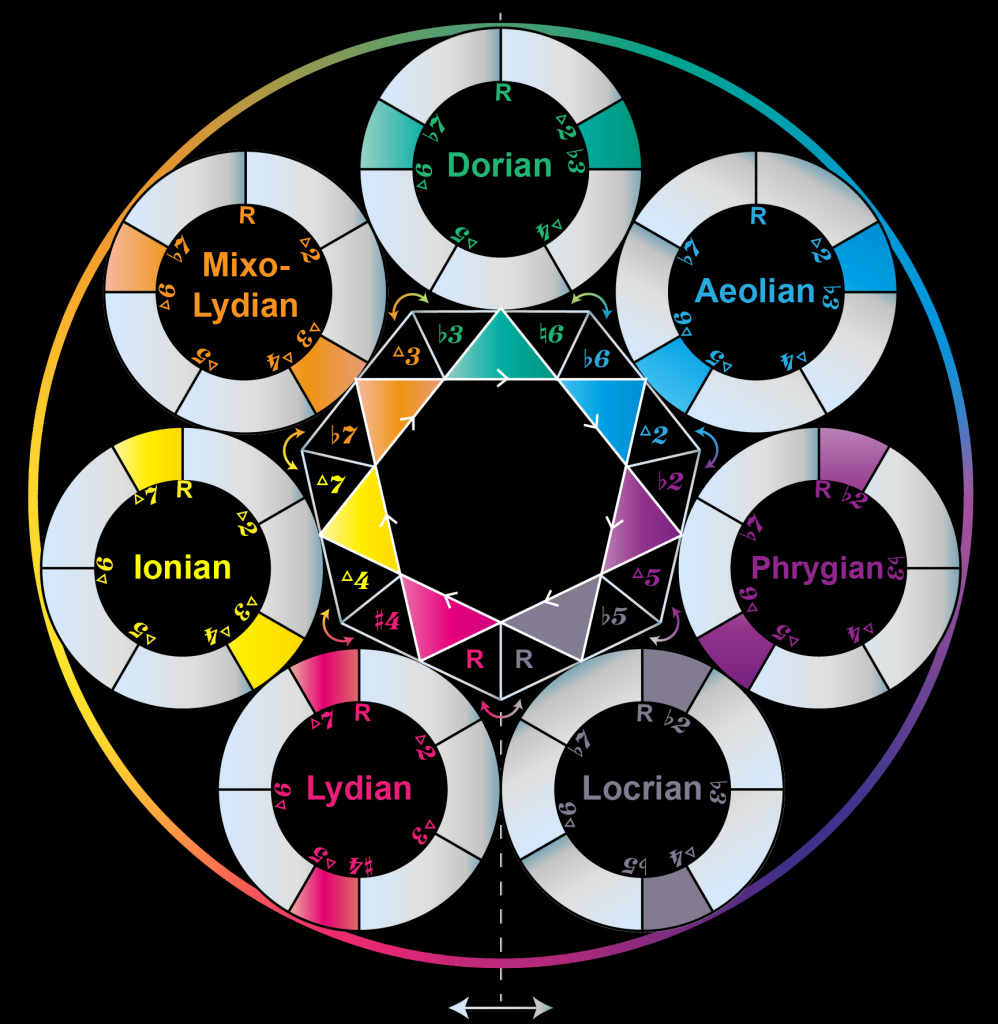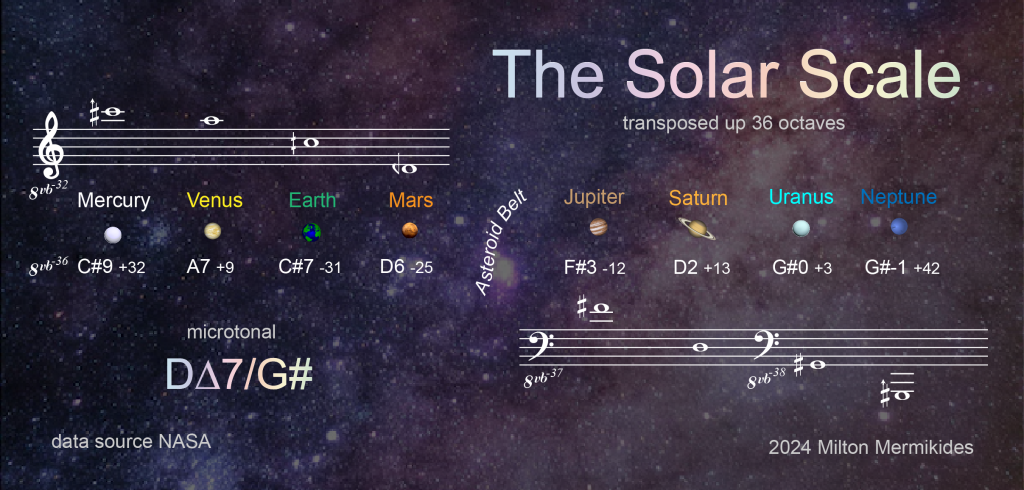In attempting to best communicate pertinent fix/vary parameters in M-Space, some novel music notations have emerged, where the structures – and often beauty – of a piece or concept are echoed visually. This intersection of illumination and visual art might be termed ‘musical illustration’ – analogous to the field of scientific illustration. Unexpectedly and unintentionally, this has led to some of these musical illustrations being shared and used more widely than their initial context. They have even invited commissions to produce visual material for outputs and events. A selection of these are presented below, showing how M-Space concepts might be used to analytical, pedagogical and aesthetic effect.
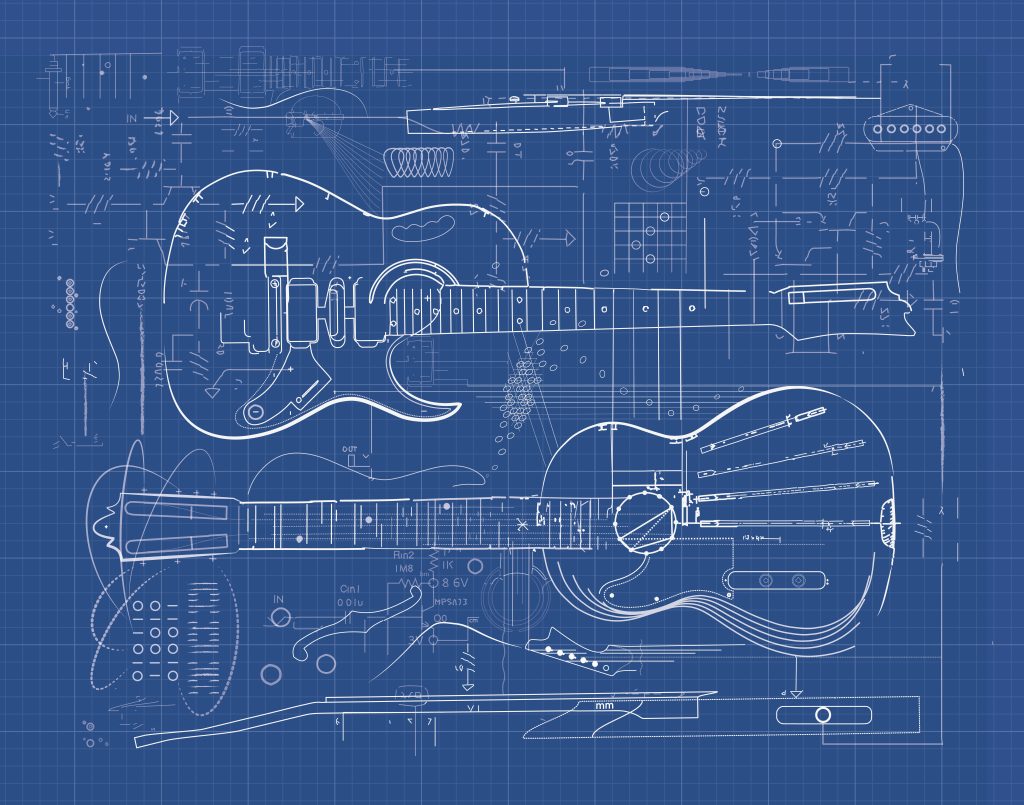
The Fretboard Diamond (2022) an illustration of the intersection of the guitar fretboard and the stave, resulting in a pitch/timbral diamond. Mount Middle E (2022) represents this note repetition as a ‘guitar keyboard’
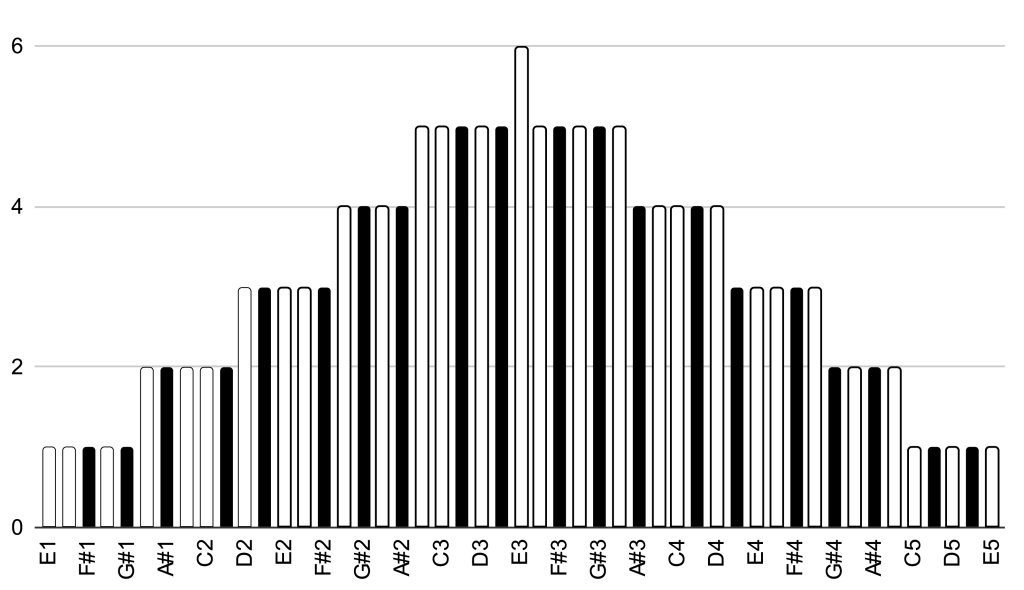

Django’s circle (right) illustrates Django Reinhardt’s solo on Nuages (1941) and discards pitch, and metric placement in favour of micro-timing within a beat cycle. The resulting constellations suggest some favoured ‘time-feel zones’. This image was featured on the cover of Soundboard Scholar no.6. (2020)

Modal Compass (2015) (right) was created through contemplation and teaching to improvisers and composers fundamentals of the diatonic modes – not just in terms of their ordered derivation – but of their relative brightness, collective symmetry and how they can be staggered intervallically in a never ending cycle. The resulting ‘modal compass’ was shared widely online, and reformatted by the Danish/Scandinavian overtone singer, choral arranger and theorist Skye Løfvander who produces significant audio and visual content around it.

Fretspace (2021) is a representation of the chromatic layout of the standard guitar fretboard with its anomalous ic4/ic5 vertical mapping.
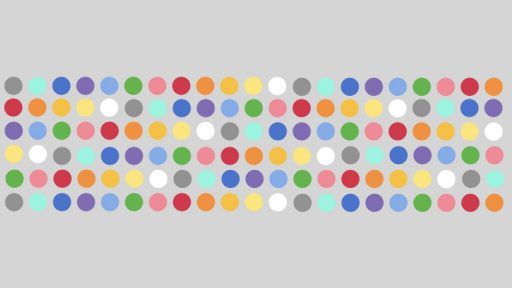
Coltrane’s Cube (2017) is a 3-D representation of Coltrane’s solo on Acknowledgement, with each motif placed in the dimensions of chromatic transposition, metric placement and rhythmic augmentation.
Guitar Stuff (2022) (left)A vision of the conceptual, physical and notational nexus of guitar activity. (Cover design for 21st Century Guitar Bloomsbury 2023)
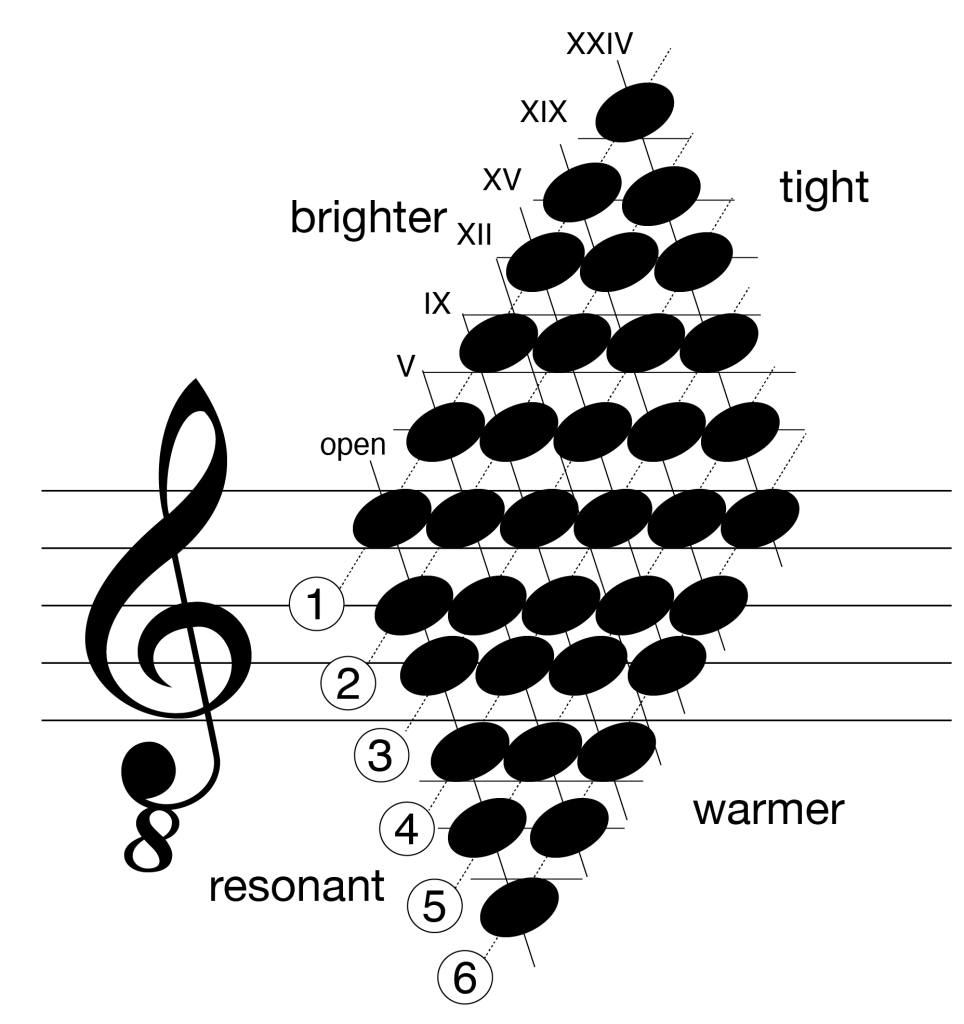
Wes Space (2017) (left) is an M-Space analysis of Wes Montgomery’s improvisational strategy in the classic ‘pivot’ section of No Blues. It was used – decontextualised – as the logo for the 2019 International Guitar Research Centre conference in Hong Kong, as a representation of cultural and stylistic exchange.

Spiegel on a Postcard 2017 (left). In discovering, analysing, and then teaching Arvo Pärt’s compositional techniques, I managed to reduce the entirety of the 126-bar 9-minute Spiegel im Spiegel melody to a postcard. This, and the circular motions in the tonnetz of Pärt’s Beatitudes (below) were noticed by academic Andrew Shenton and published by Cambridge University Press as analytical illustrations in Arvo Pärt’s Resonant Texts: Choral and Organ Music 1956–2015 (Shenton 2018) and Illiano, R., & Locanto, M. (Eds.). (2019). Twentieth-century music and mathematics. Brepols.


Theorbo Orrery (2018) (left) Stephen Goss’s Theorbo Concerto (Deux Elles 2018) (the first of its kind) plays on pluralism and non-linearity of historical style, structure and time, which I wanted to capture in the associated artwork. Every orb in the ‘orrery’ represents a section, with the interwoven dance suite (red), orchestral suite (yellow), interludes (silver) and backward theme and variations (blue) codified. The structure of the entire concerto is nested in the last movement, and all this is embedded in the rosette of the theorbo, neatly containing the labyrinthian assembly. For more information and the complete artwork: Booklet Liner Notes

Formant Field (2012) is a 2-D representation of formant parametrisation in phoneme vocalisation. The overlapping allows ambiguity and mishearing. Published in Williams, J. (2013). Teaching Singing to Children and Young Adults. Compton Pub.
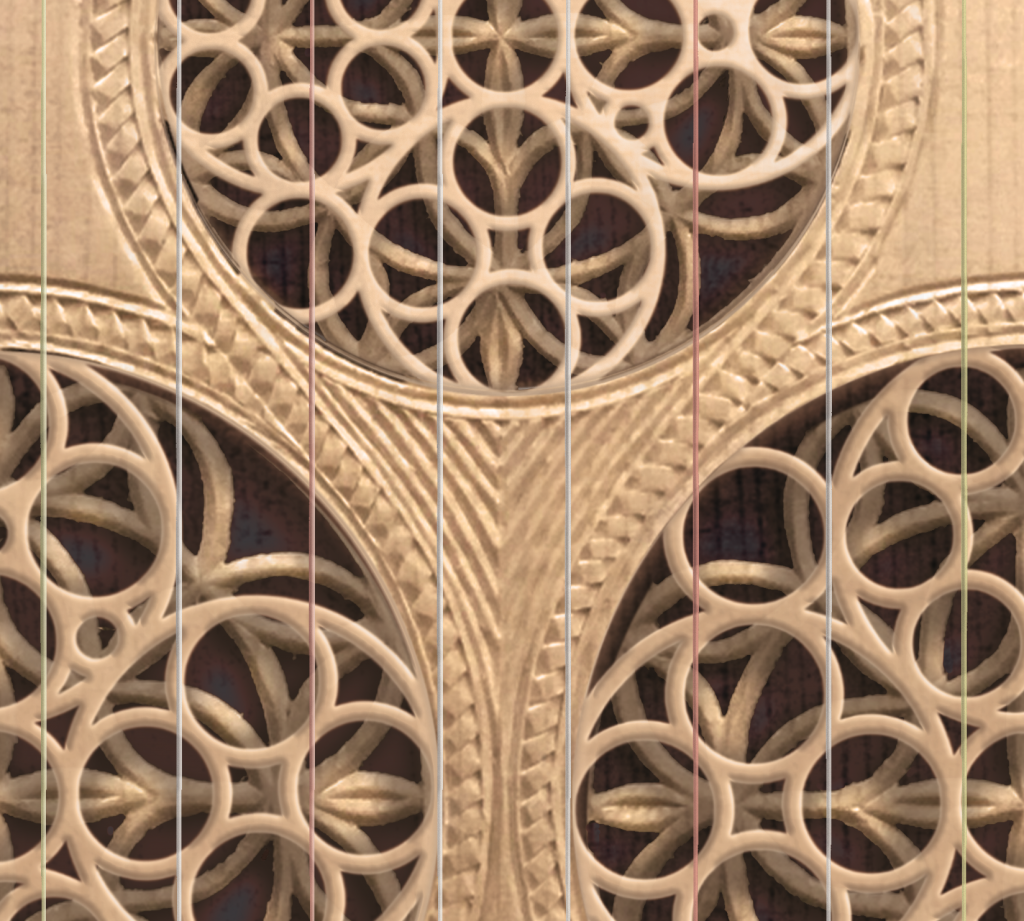
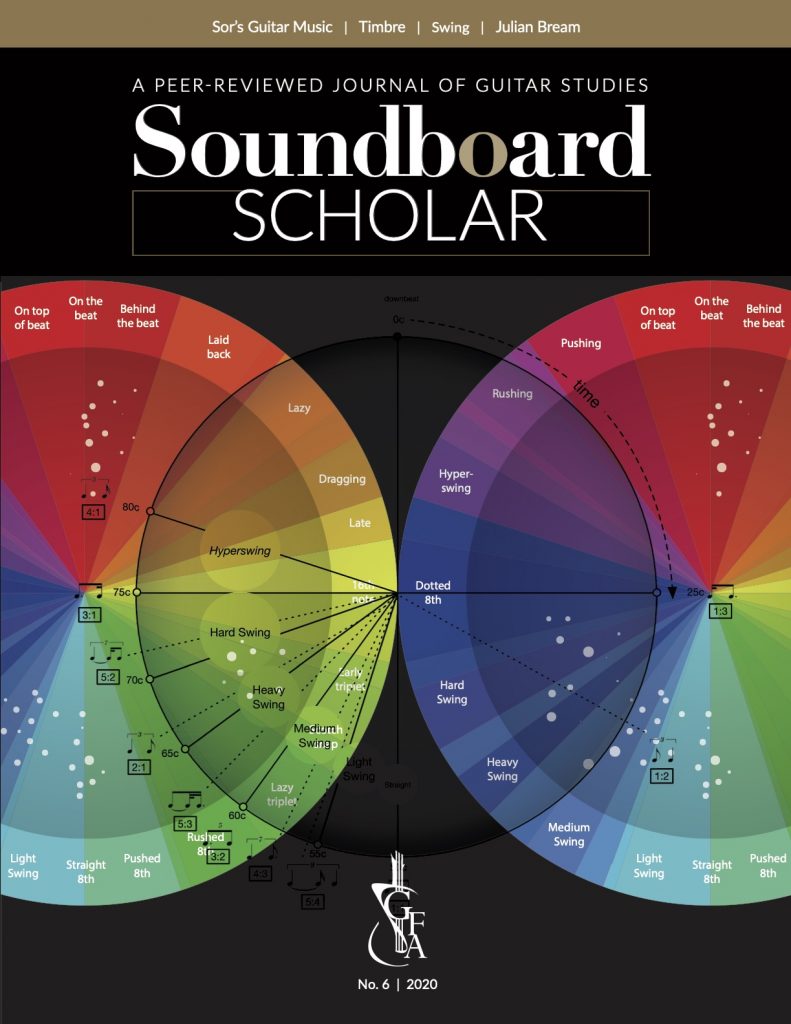
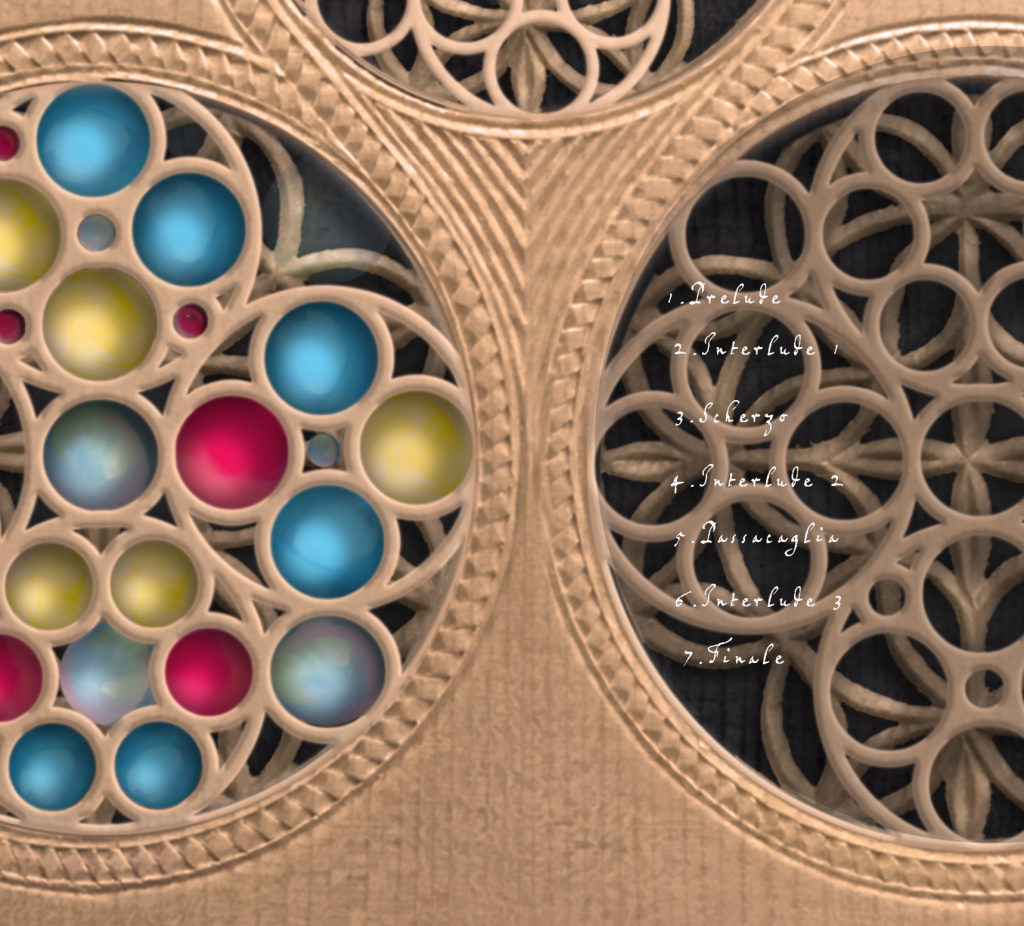
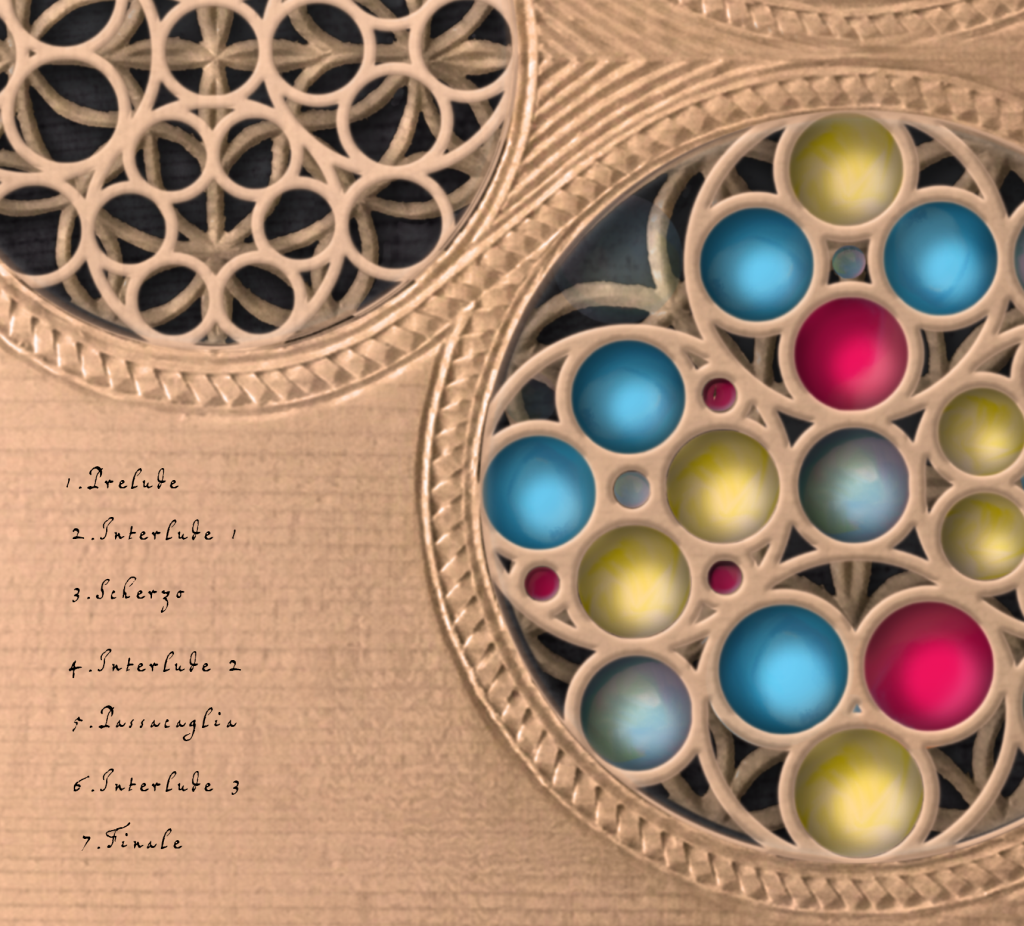
Illiano, R., & Locanto, M. (Eds.). (2019). Twentieth-century music and mathematics. Brepols.
Løfvander, Skye (2020), Overtone Music Network. Available at: https://www.overtone.cc/profiles/blogs/milton-s-modal-compass
Shenton, A. (2018). Arvo Pärt’s Resonant Texts: Choral and Organ Music 1956–2015. Cambridge: Cambridge University Press. doi:10.1017/9781139998345
Williams, J. (2013). Teaching Singing to Children and Young Adults. Compton Pub.
